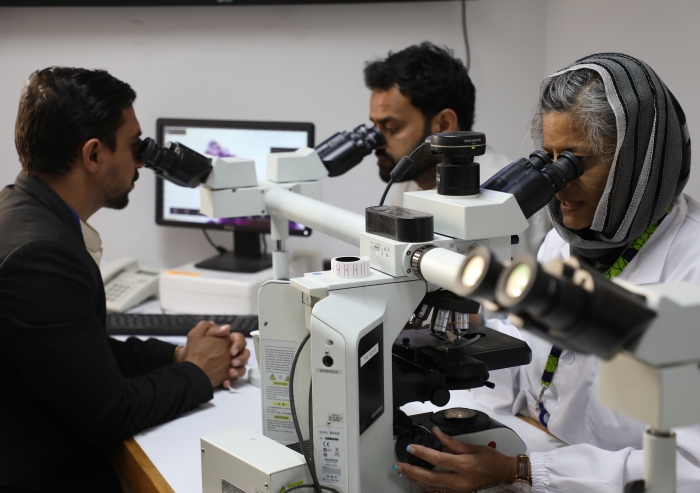The library would complement UCA’s mission to promote the social and economic development of Central Asia, particularly its mountain communities, by offering an internationally recognized standard of higher education, and enabling the people of the region to preserve their rich cultural heritage as assets for the future.
“In several conversations with Zakiah Kassam, former UCA Director of Planning and Reporting, she highlighted the rigour with which efforts were underway to launch the internationally charted university’s five-year undergraduate degree programs,” Karim said. “A number of TKN volunteers had contributed to preparing strategy papers encompassing various facets of the university’s administrative and academic functions.”
The library papers were in the context of international standards and best practices informing all aspects of the library, including space, functions, services, collections, staffing, technology, furniture, fixtures and equipment.
The library’s information technology, personnel, policies and processes would be designed to ensure that the three campus libraries become networked and enjoy equal status. The collections would reflect UCA’s curricular and research offerings at each campus and a rigorous program of information literacy and knowledge management to be in place for the training of faculty, staff and students.
A year later, in May 2014, Karim visited Central Asia to assess ground realities, dialogue with key stakeholders at UCA, and review the calibre of universities and academic libraries in the region.
He sought insights from UCA’s academic and research faculty, administrators, architects and construction personnel. Focus group sessions were conducted with administrators and students of leading universities in Bishkek and Dushanbe. Karim also met with librarians at the Aga Khan University in Karachi and the Institute of Ismaili Studies in London. All these endeavors resulted in a Library Strategy Paper which became the blueprint for operationalizing the library.
From mid-2014 to the opening of the Naryn campus in 2016, with constant guidance from Dr. Ariff Kachra, the founding Dean of UCA’s School of Arts, and with several more visits to Central Asia, efforts began in earnest to implement the library strategy. As the workload increased, another TKN volunteer, Nazlin Bhimani, Research and Special Collections Librarian at University College, London (UK), also came to work on all library developments.
Together, Karim and Nazlin finalized the library’s information management system, developed job descriptions, interviewed candidates and made hiring recommendations. In addition, they finalized collection lists, placed orders, and received and catalogued materials. Finally, they launched the library’s website and trained staff, all in time for the opening of the Naryn campus.
Presently, at the request of Diana Pauna, Dean of Arts & Sciences, Karim and Nazlin are serving on UCA’s Library Advisory Board, and working closely with her on the library’s strategic direction.
“This has been a truly gratifying experience, and the result of a group effort,” Karim said. “I feel fortunate to have witnessed the unfolding of Mawlana Hazar Imam’s vision for a world-class university in remote parts of the world, in the midst of serene rural settings and in mountainous regions.”
Diana Pauna says “I sincerely appreciate the significant TKN contribution made by Karim and Nazlin in the development of the UCA Library that started with the work on our library strategy and has continued as an ongoing consultancy for three years. I am especially grateful for their support in providing continuity during my transitioning in the Dean’s role in August 2016 and, also in 2017, when there was a change in our library’s management that coincided with the launch of the Khorog campus library. Given the start-up phase of the UCA Library and the new library staff, their expertise has also been crucial in creating all the basic library documentation and procedures in line with the UCA vision”.













